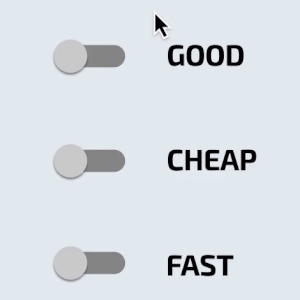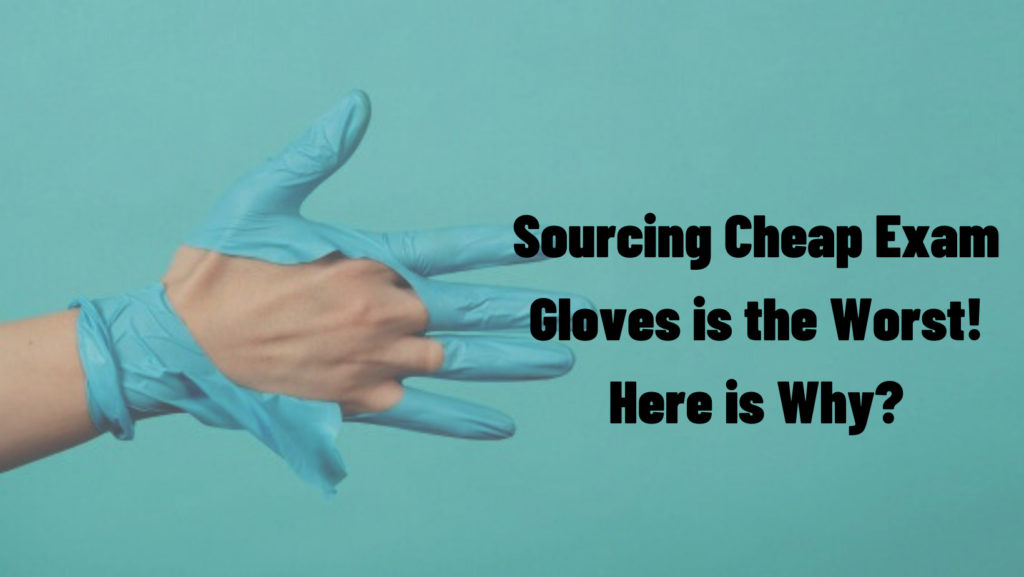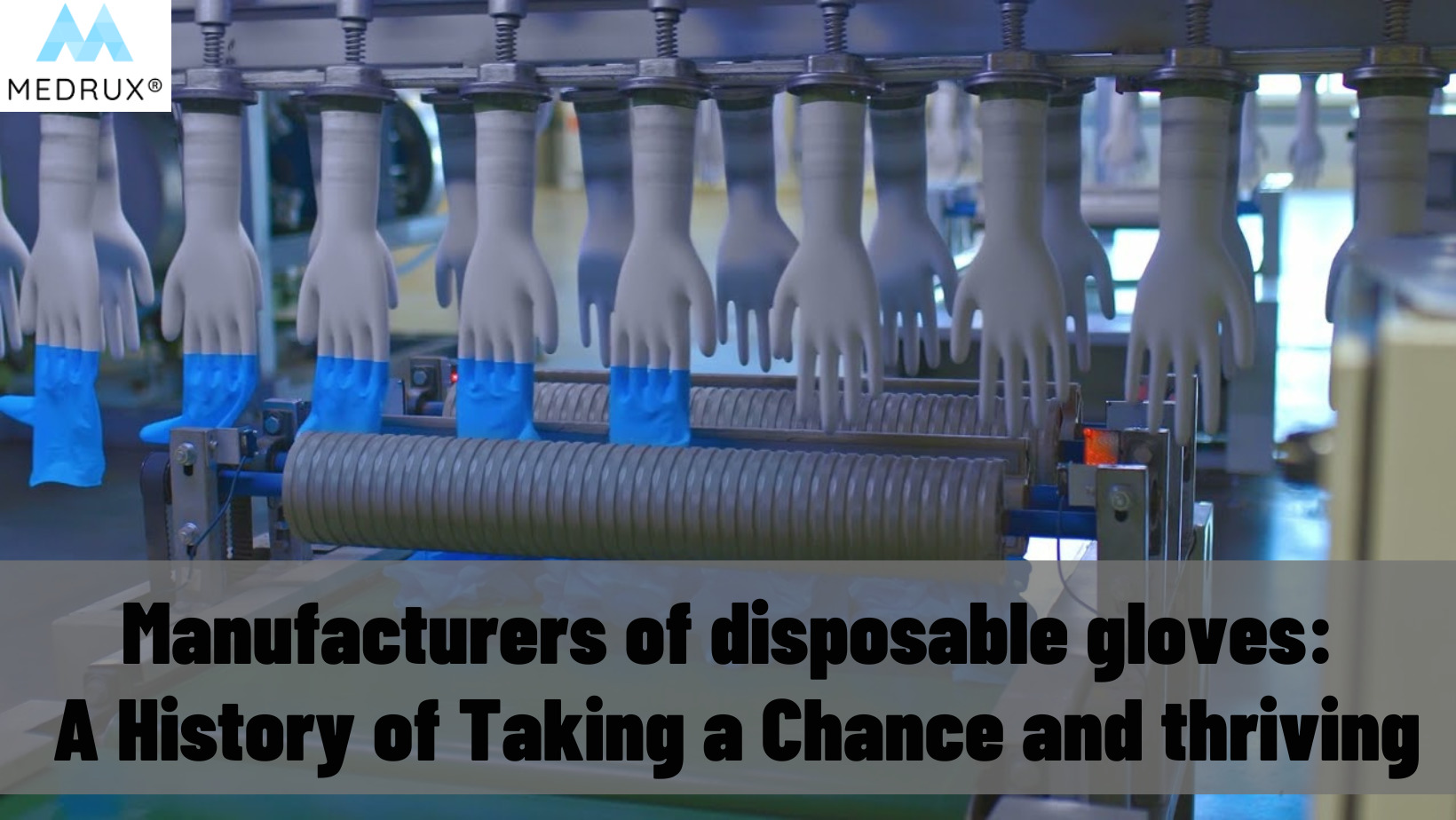Most wholesalers are looking for the best ROI, trying to find the cheapest exam gloves on the market, and assuming that they got the best deal by doing so.
Not only will this backfire in the long run, but it will also ultimately lead the wholesaler to be blocked from the market due to the reputation of selling cheap gloves.
The question is, what makes disposable gloves cheap and what affects their pricing?
And how much you can negotiate to get the best deal without compromising the quality of examination gloves.
Quantity Vs. Quantity of exam gloves?
Everything comes with a cost. If you want to have the best workplace, then you have to buy the best gloves that are of high quality.
This article will explain why you should not look for cheap exam gloves as an option for your workplace!
Moreover, how your workplace could be affected by using cheap gloves. All you need to do is keep scrolling down and keep reading.
Thinking that buying cheap exam gloves will help you to save a lot of money is a myth!

Below we provide some of the consequences that will happen if you decide to purchase cheap gloves…keep reading!
1. High risk of skin allergy
Buying cheap exam gloves could be the worst experience for you and your patients!
For a company to provide you with cheap gloves, they must have used cheap raw materials, poor industrial processes, and no testing standards.
What are the practical implications?
Consequences vary.
You might experience skin allergies such as contact dermatitis characterized by symptoms ranging from swelling, pain, redness, and hives.
Sometimes, symptoms could be more severe and range from coughing, breathing difficulty, itchy eyes, and runny nose to life-threatening symptoms due to shock or anaphylaxis that may lead to death.

Why do cheap materials cause skin allergies?
Various factors frequently cause skin allergies caused by cheap materials. One of the most common is the treatment process’s ineffectiveness due to its high cost.
Conclusion and recommendation
So, it is evident enough that it is essential to consider the raw material while purchasing gloves, even if you will need to pay more money for better quality, high standards, and safe use.
If you have workers allergic to latex, you can purchase high-quality nitrile medical exam gloves that are latex-free. You can buy certified latex gloves if you are not allergic to latex.
2. Permeability and functional inadequacy
For glove production, there is a list of standards and testing procedures provided by an international organization to be followed by glove manufacturing companies.
One of the testing procedures is the permeability test.
If a glove fails to pass the test, water, chemicals, and other fluids could pass through and reach your hand; thus, there is no protection.
How do cheap exam gloves cause permeability?
Most companies that provide cheap gloves mostly use poor-quality materials that are not designed to be used for this purpose.
Moreover, manufacturing gloves that meet international standards require testing and quality certifications typically unavailable from firms that sell low-cost gloves.
Conclusion and recommendation
Purchasing cheap exam gloves seems not worth the risk, as mentioned since the troubles will be doubled afterward.
We highly recommend products that meet the quality standards by passing the required permeation tests, such as gloves that follow the EN 374 and EN 420 standards (1).
Moreover, we recommend requesting glove samples and completing your purchase from ISO-certified vendors.
3. Low durability and puncture resistance
If you’re still concerned about the cost, consider this before buying your next cheap disposable gloves.
They are formed of raw materials that are incapable of withstanding any work.
What are the practical implications?
In reality, any exam glove is worn for a short period and then replaced, but in the case of cheap gloves, you will notice that they get thin quickly.
As a result, if you examine a patient, you will need to replace your glove more than once during the same patient examination!
On the other hand, cheap gloves are not puncture-resistant, so you must replace them regularly.
Furthermore, if you did not discover this puncture, you might be at high risk of infection.
What are the financial implications?
You might have assumed you saved money by purchasing 300 inferior gloves for the price of 150 superior gloves.
However, the low durability feature might change this in an instant! Because the speed of switching between gloves will be faster than on any other glove type.
In addition, you will face many additional task-related challenges that will cost you more and more money.
Conclusion and recommendation
You should save your money and purchase high-quality gloves that will provide you with both high durability and high puncture resistance.
We highly recommend nitrile gloves with a high tear resistance level, making them a perfect choice!
That’s why nitrile gloves protect against sharp items, complex mechanical jobs, wounds, cuts, dental examinations, body fluids, and the food industry.
Moreover, it has been proven that detecting holes in nitrile gloves is more accessible than in latex gloves.
Cheap gloves could affect your whole workplace!
In a few words, using cheap exam gloves will provide no protection!
Since many professions use exam gloves so you will probably face obstacles.
4. High risk of infection
Suppose you are sourcing gloves for physicians, dentists, lab technicians, or other professionals dealing with blood, fluids, body secretions, or wounds. In that case, there is a high risk of infection for the previously mentioned reasons.
Cross-contamination puts doctors in danger, their patients, and the entire hospital or clinic system.
Not only healthcare workers but also different workplaces, police enforcement, and garbage collection are all in danger of coming into touch with needles or other hazardous equipment.
Good quality gloves assist guard against things like broken glass, scalpels, and phlebotomy instruments, all of which can cause harm and spread blood-borne illnesses.
Recommendations
As a result, if you are the one sourcing exam gloves for workplaces such as the ones stated above, remember to avoid purchasing substandard gloves, which will give your workers, as well as your entire organization, a bad reputation and may cost you more money than you saved.
5. Food contamination
It is not only hand washing that is critical in the food services industry but also the use of gloves.
Many well-known food companies have been judged for food contamination and poising due to hygiene-related diseases; the following part will discuss how cheap gloves can adversely affect your industry and cost you more money.
Glove puncture allows the transfer of microorganisms
Food service industries commonly use gloves to create a barrier between their hands and food to reduce the contamination with E. coli, Staphylococcus, Giardia, Hepatitis A, Norovirus, and Shigella.
The transfer of these microbes quickly happens when the glove has low puncture resistance.
In a review published by the journal of food, it has been stated that when a glove break occurs, a liquid bridge of microbial contamination can flow to the hands, contact surfaces, and food.
Surprisingly, “the extent of this flow can be deduced from the fact that sweat accumulated inside a glove can allow up to 1.8 | 104 CFU of S. aureus to pass through a single hole a little larger than 1 mm during a 20-min period.”
If a glove puncture is known or suspected, both gloves should be changed as soon as possible.
Moreover, it has been found that vinyl and latex gloves allowed passage of 1.4 and 1.5% of poliovirus, and 63% of vinyl gloves and 7% of latex gloves leaked a bacteriophage (27 nm in diameter) during experimental clinical procedures.
Although viral penetration is less of a concern in the food industry than in health care settings, gloves should be durable enough to withstand the rigors of specific food handling operations.
The glove’s raw materials matter as well in the food industry!
As we discussed before, the glove raw material matters the most; it has been found that vinyl gloves are composed of inexpensive phthalates DINP (Diisononyl phthalate) and DEHP (Bis(2-Ethylhexyl) phthalate), and BPA (Bisphenol A).
Worth mentioning that these materials are known to cause cancer and heart diseases.
Moreover, the adverse health consequences of BPA and phthalates in food and work environments in the United States are predicted to cost $175 billion in healthcare expenses.
6. Negative environmental impact and higher disposal costs
Many properties, including that puncture and tear resistance, stretchiness, and barrier capabilities, are significant environmental concerns.
With current global strategies for reducing plastics and many other substances that harm the environment, most firms are looking for more efficient ways.
They started to consider developing biodegradable gloves and improving the quality of gloves produced so that the likelihood of switching from one glove to another within the same task decreases.
On the contrary, cheap gloves puncture easily, as mentioned before, thus adding an environmental burden and increasing the waste and disposable costs.
7. More hand injuries equal more money!
Cheap gloves provide less sensitivity, which, therefore, give false sense to their users, thus resulting in errors.
For example, food handlers may get many hand injuries while using knives and sharp instruments because of the cheap gloves.
Hand injuries are not only from sensitivity but also from chemicals used in the cheap gloves that stimulate their skin to develop skin allergies that could be severe, as mentioned before.
In a recent study, it has been found that occupational skin diseases (OSD) are amongst the most common occupational illnesses in Europe and many other countries around the Globe.
Alone in Europe, OSD-related costs vastly exceed 5 billion €/year, mainly by loss of productivity, causing detrimental socio-economic consequences due to often high rates of sickness absence, job loss, and permanent disability.
8. Reduction in workplace productivity
Sourcing cheap gloves will hurt workplace productivity due to all of the factors mentioned before.
There are many studies on the relationship between workplace safety, job satisfaction, and productivity.
In a study entitled “Workers’ Perceptions of Workplace Safety and Job Satisfaction,” it has been mentioned that the quality and interruption of their job are two of the most prominent reasons workers fail to wear personal protective equipment (PPE).
Firms that commit to offering high-quality PPE from reputable suppliers can boost employee work satisfaction and reduce the number of incidents caused by inadequate PPE.
Final thoughts…
Sourcing cheap exam gloves is a false economy that will not save you money but will cost you more.
It may also cost you the loss of your good reputation and disturb your workplace harmony. Therefore, it is highly recommended to use high-quality source gloves that will help you earn more money.
Now that we have reached the end of our article, I hope you enjoyed reading it!






